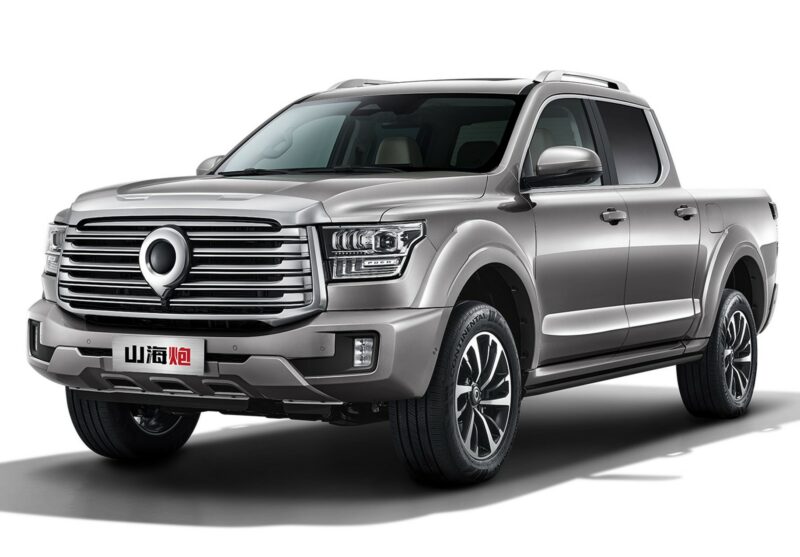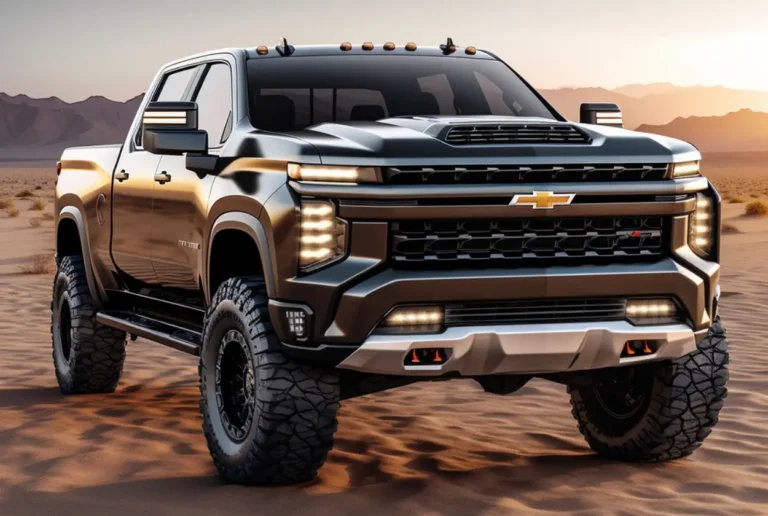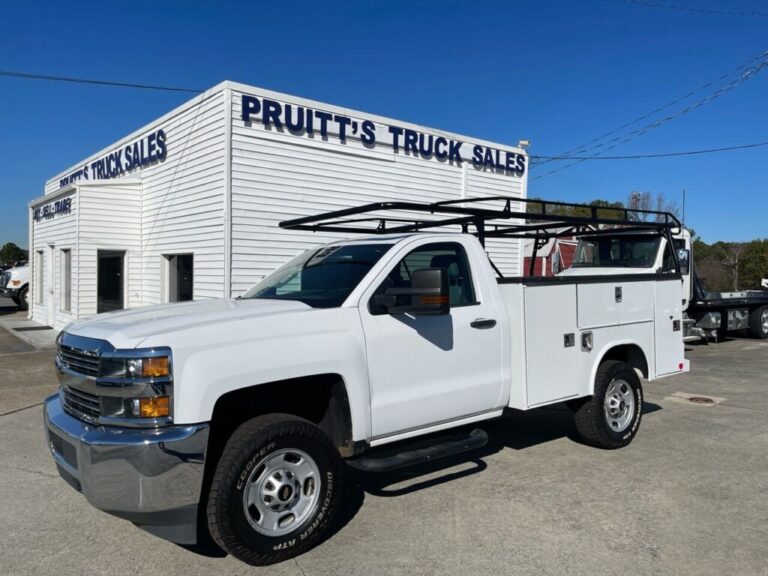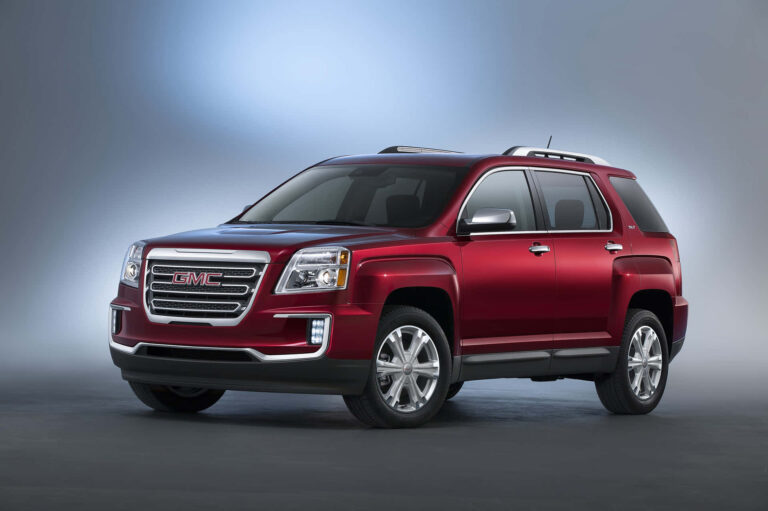Company Pickup Trucks For Sale: Your Comprehensive Guide to Smart Fleet Acquisitions
Company Pickup Trucks For Sale: Your Comprehensive Guide to Smart Fleet Acquisitions cars.truckstrend.com
Introduction: Unlocking Value in Pre-Owned Powerhouses
In the demanding world of business, a reliable pickup truck is often more than just a vehicle; it’s a vital tool, a mobile workshop, and a cornerstone of operational efficiency. For many companies, small businesses, independent contractors, and even individuals seeking a robust workhorse, the prospect of acquiring brand-new fleet vehicles can be daunting due to significant upfront costs and rapid depreciation. This is where the market for "Company Pickup Trucks For Sale" emerges as a highly attractive and practical alternative.
Company Pickup Trucks For Sale: Your Comprehensive Guide to Smart Fleet Acquisitions
These are not merely used trucks; they are often former fleet vehicles, previously owned and operated by businesses, government agencies, utility companies, or large rental firms. They are put up for sale due to scheduled fleet rotations, end-of-lease terms, project completion, or asset liquidation. Purchasing a company pickup truck can offer substantial cost savings, predictable maintenance histories, and often come equipped with valuable features designed for specific work applications. This comprehensive guide will delve into everything you need to know about navigating this dynamic market, ensuring you make an informed and advantageous purchase.
Understanding "Company Pickup Trucks For Sale": What They Are and Why They’re Available
Company pickup trucks for sale typically originate from large-scale commercial operations that maintain fleets of vehicles for their daily business activities. These can include:
- Construction Companies: Hauling materials, tools, and equipment.
- Landscaping and Grounds Maintenance Firms: Transporting mowers, trimmers, and supplies.
- Utility Providers (Electric, Gas, Water): Specialized service trucks for infrastructure maintenance.
- Government Agencies (Municipal, State, Federal): Parks and recreation, public works, law enforcement support.
- Rental Car Companies: Vehicles rented out for short-term commercial or personal use.
- Delivery and Logistics Companies: Light-duty hauling for goods and packages.

The reasons these trucks become available are usually systematic and planned:
- Scheduled Fleet Rotation: Companies often upgrade their fleets on a predetermined schedule (e.g., every 3-5 years or after a certain mileage) to ensure reliability and incorporate newer technology.
- End of Lease Terms: Many businesses lease their vehicles, and once the lease expires, the trucks are returned and sold.
- Project Completion: Trucks acquired for specific, large-scale projects may be sold once the project concludes.
- Asset Liquidation/Downsizing: In cases of company restructuring, downsizing, or bankruptcy, entire fleets may be sold off.
- Damage or Salvage: Less commonly, some fleet vehicles may be sold "as-is" due to significant damage, though these are typically clearly marked.
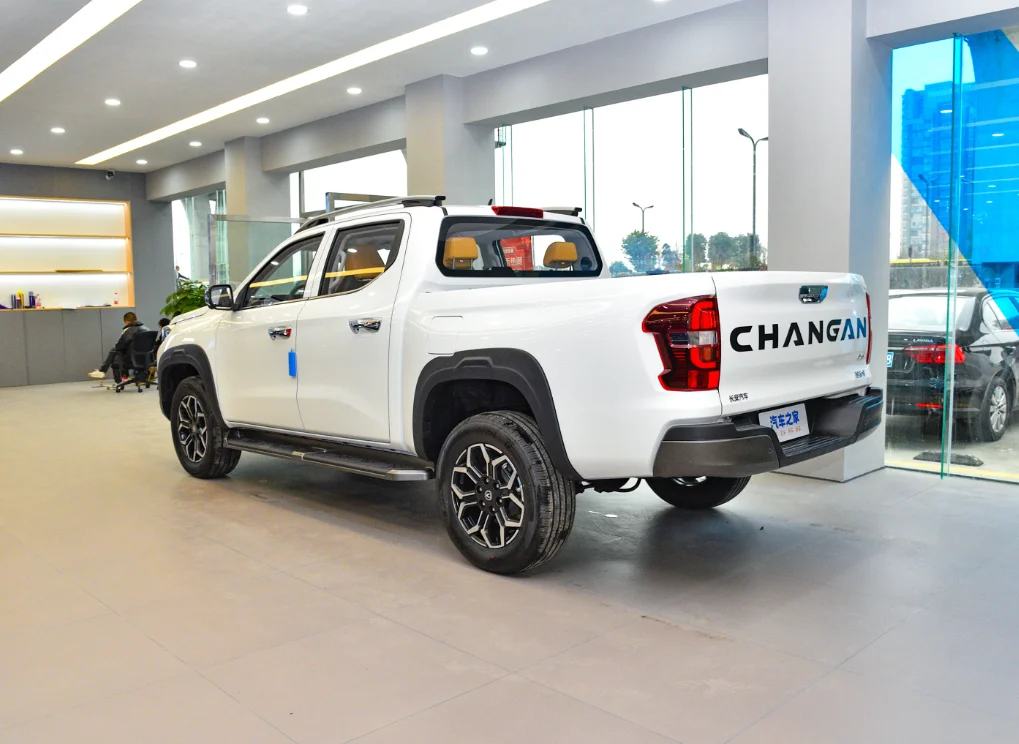
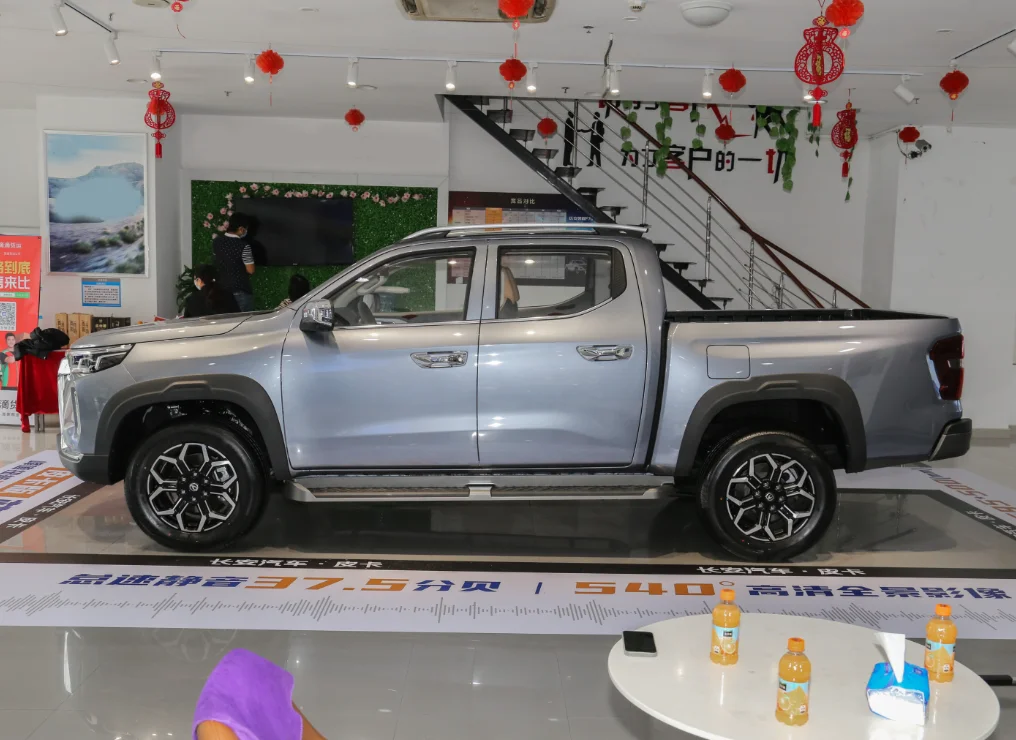
Unlike private sales, company trucks often come with a more transparent history due to stringent corporate maintenance policies, making them a potentially more reliable used vehicle option.
The Undeniable Benefits of Buying Used Company Pickup Trucks
Opting for a used company pickup truck can yield significant advantages:
- Substantial Cost Savings: The primary benefit is the lower purchase price. New trucks depreciate rapidly in their first few years. Buying a used fleet vehicle means someone else has absorbed the steepest part of this depreciation curve, offering you more truck for your money.
- Documented Maintenance History: Most large companies and government entities adhere to strict preventative maintenance schedules. This often means detailed service records are available, providing invaluable insight into the vehicle’s past care and potential future needs.
- Work-Ready Features and Upfits: Many fleet trucks are already equipped with practical features like utility beds, toolboxes, ladder racks, towing packages, heavy-duty suspensions, or commercial-grade interiors. These factory or aftermarket upfits can save you thousands of dollars and countless hours compared to buying a standard truck and modifying it yourself.
- Proven Reliability: Vehicles chosen for commercial fleets are typically models known for their durability and ability to withstand rigorous use. They are built to work, not just commute.
- Availability and Variety: Due to fleet rotations, large numbers of similar vehicles may become available at once, increasing your chances of finding the exact make, model, and configuration you need.
Types of Company Pickup Trucks You’ll Encounter
The market for company pickup trucks is diverse, catering to a wide range of needs:
- Light-Duty (Half-Ton) Pickups: (e.g., Ford F-150, Chevrolet Silverado 1500, Ram 1500, Toyota Tundra, Nissan Titan). These are versatile and commonly used for general utility, light hauling, and supervisor vehicles. You’ll find a mix of cab configurations (regular, extended, crew) and bed lengths.
- Heavy-Duty (Three-Quarter & One-Ton) Pickups: (e.g., Ford F-250/F-350, Chevrolet Silverado 2500/3500 HD, Ram 2500/3500). These are built for serious work, offering higher payload and towing capacities. They are prevalent in construction, towing, and specialized utility roles, often powered by diesel engines.
- Specialized and Upfitted Trucks:
- Service Body/Utility Trucks: Featuring integrated compartments and bins for tools and equipment.
- Flatbed Trucks: Open beds for easy loading of oversized items.
- Dump Trucks: Equipped with hydraulic dump beds for bulk materials.
- Fleet-Spec Trims: Often basic or mid-level trims, focused on functionality rather than luxury, which can also contribute to lower purchase prices.
Where to Find Company Pickup Trucks For Sale: Your Buying Guide
Locating these workhorses requires knowing the right channels:
- Fleet Auctions:
- Government Surplus Auctions: Websites like GovDeals.com, PublicSurplus.com, or state/local government auction sites frequently list vehicles from various agencies.
- Commercial/Wholesale Auctions: Major auction houses (e.g., Manheim, ADESA) primarily serve dealers, but some offer public access or have retail divisions.
- Specialized Fleet Auctions: Some auctioneers focus exclusively on commercial vehicles.
- Direct from Fleet Sales Divisions: Large corporations, utility companies, or leasing companies sometimes sell directly to the public through their dedicated sales departments. Check their official websites.
- Specialized Dealerships: Many dealerships specialize in commercial vehicles or have dedicated "fleet sales" or "work truck" divisions that acquire and re-sell these trucks.
- Online Marketplaces:
- Commercial Sections of Major Car Sites: Autotrader, Cars.com, and eBay Motors often have categories for commercial trucks.
- Dedicated Commercial Vehicle Sites: Websites like CommercialTruckTrader.com or TruckPaper.com.
- Rental Car Sales: Companies like Enterprise Car Sales frequently sell off their fleet vehicles, including pickups.
Key Considerations Before You Buy: Navigating the Purchase
A smart purchase requires thorough due diligence:
- Pre-Purchase Inspection (PPI): This is non-negotiable. Hire an independent, trusted mechanic to thoroughly inspect the truck, especially its mechanical components, frame, and any specialized equipment. They can identify wear and tear that isn’t immediately visible.
- Maintenance Records Review: Request and meticulously review all available service records. Look for consistency, adherence to schedules, and any recurring issues. A well-maintained fleet truck is a gem.
- Vehicle History Report (CARFAX/AutoCheck): Run a comprehensive report to check for accidents, salvage titles, flood damage, odometer discrepancies, and confirm previous commercial ownership.
- Mileage vs. Engine Hours: For many fleet trucks, especially those used for utility work or plowing, engine hours can be more indicative of wear than mileage alone, as they often idle for extended periods. Inquire about both.
- Inspect Upfits and Customizations: If the truck has a service body, ladder rack, or other specialized equipment, inspect its condition thoroughly. Ensure it meets your needs, or factor in the cost of removal or modification.
- Rust and Body Damage: Commercial trucks often operate in harsh conditions. Check for rust, especially on the frame, suspension components, and bed. Minor dents and scratches are common, but significant body damage should be investigated for structural integrity.
- Test Drive: Pay attention to engine noise, transmission shifting, braking performance, steering, and any unusual vibrations. Drive it under conditions similar to how you intend to use it (e.g., loaded if you plan to haul).
- Budget Beyond Purchase Price: Account for taxes, registration fees, insurance, and potential immediate repairs or maintenance items (e.g., new tires, brakes) that might be needed shortly after purchase.
Tips for a Successful Purchase & Maximizing Your Investment
- Define Your Needs: Before you start looking, clearly outline what you need the truck for (payload capacity, towing, cab style, bed length, specific features).
- Set a Realistic Budget: Include not just the purchase price but also potential immediate repairs and ongoing operating costs.
- Be Patient: The right truck might not appear overnight. Research thoroughly and don’t rush into a decision.
- Negotiate: Especially at direct sales or some dealerships, there’s often room for negotiation. At auctions, set your maximum bid and stick to it.
- Factor in Immediate Maintenance: Assume you’ll need to perform basic maintenance (oil change, fluid checks, filter replacement) even if records look good.
- Consider Total Cost of Ownership: Beyond the purchase price, think about fuel efficiency, insurance costs, and expected long-term maintenance.
Potential Challenges and How to Overcome Them
While beneficial, buying used company trucks comes with potential challenges:
- High Mileage/Wear and Tear: Fleet vehicles are used extensively. While well-maintained, components like transmissions, turbos (on diesels), or suspension parts might be nearing the end of their lifespan.
- Solution: A thorough PPI is critical. Budget for potential major component replacements within the first year or two.
- Cosmetic Imperfections: Dings, scratches, faded paint, and interior wear are common. These trucks were work tools, not show cars.
- Solution: Accept these as part of the cost savings, or factor in detailing/paintwork costs if cosmetics are important to you.
- Specialized Upfits Not Needed: A truck might have an expensive utility body you don’t need, making it heavier and less fuel-efficient.
- Solution: Evaluate the cost of removing the upfit versus finding a truck without it. Sometimes, selling the upfit separately can recoup some cost.
- "As-Is" Sales and Limited Warranty: Most used fleet trucks are sold "as-is," meaning no warranty.
- Solution: Emphasize the PPI. Consider purchasing an extended warranty from a third-party provider if available and cost-effective for your peace of mind.
- Auction Environment: Auctions can be fast-paced, with limited time for inspection.
- Solution: Do your homework beforehand. Arrive early, inspect the vehicle thoroughly during preview times, and know your maximum bid.
Illustrative Price Table: Company Pickup Trucks For Sale (Estimated Ranges)
Please note: These are estimated price ranges for used company pickup trucks in decent working condition. Actual prices vary significantly based on year, mileage, condition, specific trim, features, geographic location, and market demand. This table is for illustrative purposes only.
| Category | Common Models | Typical Year Range | Estimated Price Range (USD) | Key Features/Notes |
|---|---|---|---|---|
| Light-Duty (1/2 Ton) | Ford F-150, Chevy Silverado 1500, Ram 1500, Toyota Tundra | 2015 – 2020 | $15,000 – $30,000 | Often V6 or smaller V8 engines. Mix of regular, extended, or crew cabs. May have basic work packages (bed liners, towing hitches). Ideal for general hauling, light commercial use, or as a secondary vehicle. Higher mileage common. |
| Heavy-Duty (3/4 Ton) | Ford F-250, Chevy Silverado 2500 HD, Ram 2500 | 2014 – 2019 | $20,000 – $40,000+ | Primarily V8 gasoline or diesel engines. Built for heavier payloads and towing. Often come with larger beds, enhanced cooling, and higher GVWR. Common in construction, landscaping, and utility. |
| Heavy-Duty (1 Ton) | Ford F-350, Chevy Silverado 3500 HD, Ram 3500 | 2013 – 2018 | $25,000 – $50,000+ | Most powerful engines (often diesel), dual rear wheels (dually) common. Maximum payload and towing capabilities. Used for very heavy hauling, fifth-wheel/gooseneck towing, and specialized commercial applications. |
| Specialized/Upfitted | Ford F-Series, Ram, Silverado (with utility bodies, flatbeds, etc.) | 2012 – 2018 | $18,000 – $45,000+ | Price highly dependent on the type and condition of the specialized equipment (e.g., service body, crane, dump bed). May be older due to the longevity of the specialized equipment. Significant value in included features. |
Frequently Asked Questions (FAQ) about Company Pickup Trucks For Sale
Q1: Are company trucks reliable despite high mileage?
A1: Many company trucks are surprisingly reliable because they often follow strict preventative maintenance schedules. High mileage isn’t necessarily a deal-breaker if the truck has been well-maintained and passes a thorough pre-purchase inspection.
Q2: Do company pickup trucks come with a warranty?
A2: Most used company pickup trucks are sold "as-is," without a warranty. However, some specialized dealerships might offer limited warranties, or you may be able to purchase a third-party extended warranty. Always clarify warranty terms before purchase.
Q3: How can I check the maintenance history of a company truck?
A3: Request service records directly from the seller (company, dealership, or auction house). Additionally, run a Vehicle History Report (like CARFAX or AutoCheck), which often compiles reported service events.
Q4: Is high mileage a deal-breaker for a used fleet truck?
A4: Not necessarily. For a fleet truck, consistent maintenance is often more important than just the odometer reading. Trucks used for long-haul highway driving may have high mileage but less wear-and-tear on components than a low-mileage truck used for stop-and-go city driving or heavy off-roading.
Q5: What’s the best place to buy a company pickup truck?
A5: The "best" place depends on your comfort level and needs. Fleet auctions often offer the lowest prices but require quick decisions and "as-is" purchases. Specialized dealerships provide more convenience and potentially some reconditioning. Direct sales from companies can be a good balance of value and transparency.
Q6: Can I get financing for a used fleet truck?
A6: Yes, standard auto loans are available for used vehicles, including fleet trucks. Lenders will consider the vehicle’s age, mileage, and your creditworthiness. Some specialized commercial vehicle lenders might also be an option.
Q7: What should I look for during a test drive?
A7: Listen for unusual noises from the engine or transmission. Check for smooth shifting. Test the brakes thoroughly. Ensure all lights, gauges, and accessories work. Pay attention to steering feel, suspension performance, and any vibrations or pulling.
Conclusion: A Smart Investment for the Savvy Buyer
The market for "Company Pickup Trucks For Sale" represents a unique opportunity to acquire capable, work-ready vehicles at a fraction of the cost of new models. While they may carry higher mileage or some cosmetic wear, their often-robust construction and history of diligent maintenance make them compelling assets for small businesses, contractors, or anyone needing a dependable utility vehicle.
By understanding where to look, what to look for, and how to conduct thorough due diligence, you can confidently navigate this market. A pre-purchase inspection, a review of maintenance records, and a clear understanding of your own needs will empower you to make an informed decision. Investing in a used company pickup truck isn’t just about saving money; it’s about making a smart, strategic acquisition that can significantly enhance your operational capabilities without breaking the bank. With careful planning, your next workhorse could be a pre-owned powerhouse, ready to tackle any job you throw its way.
